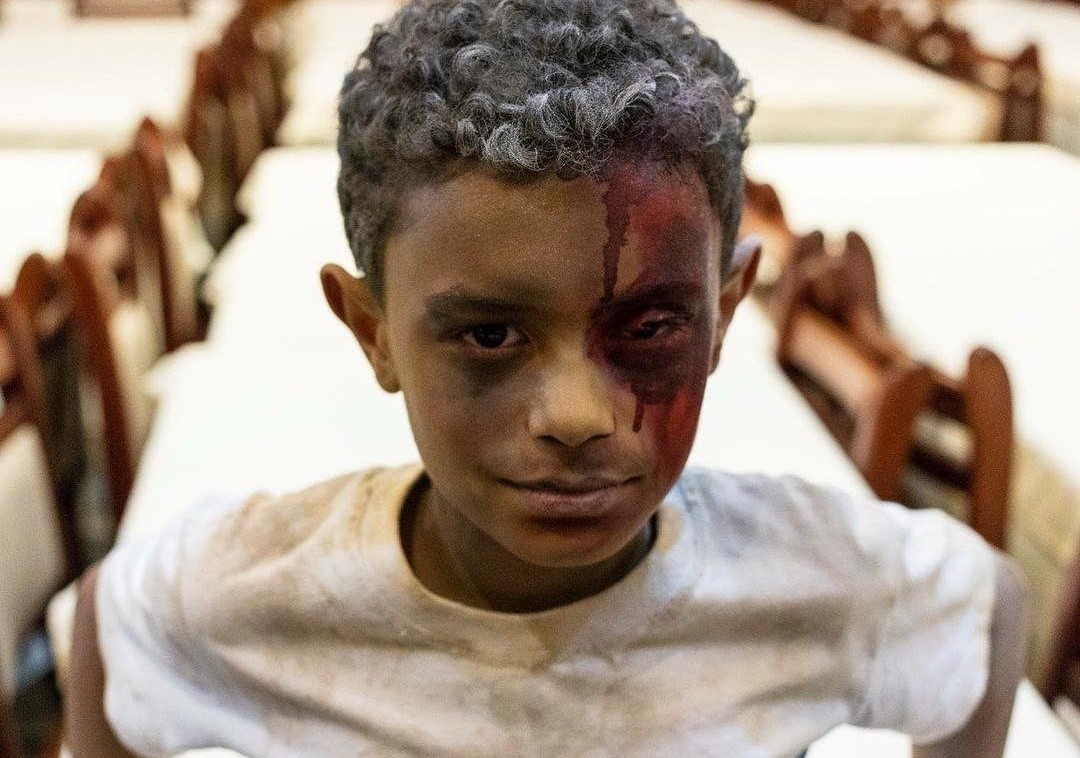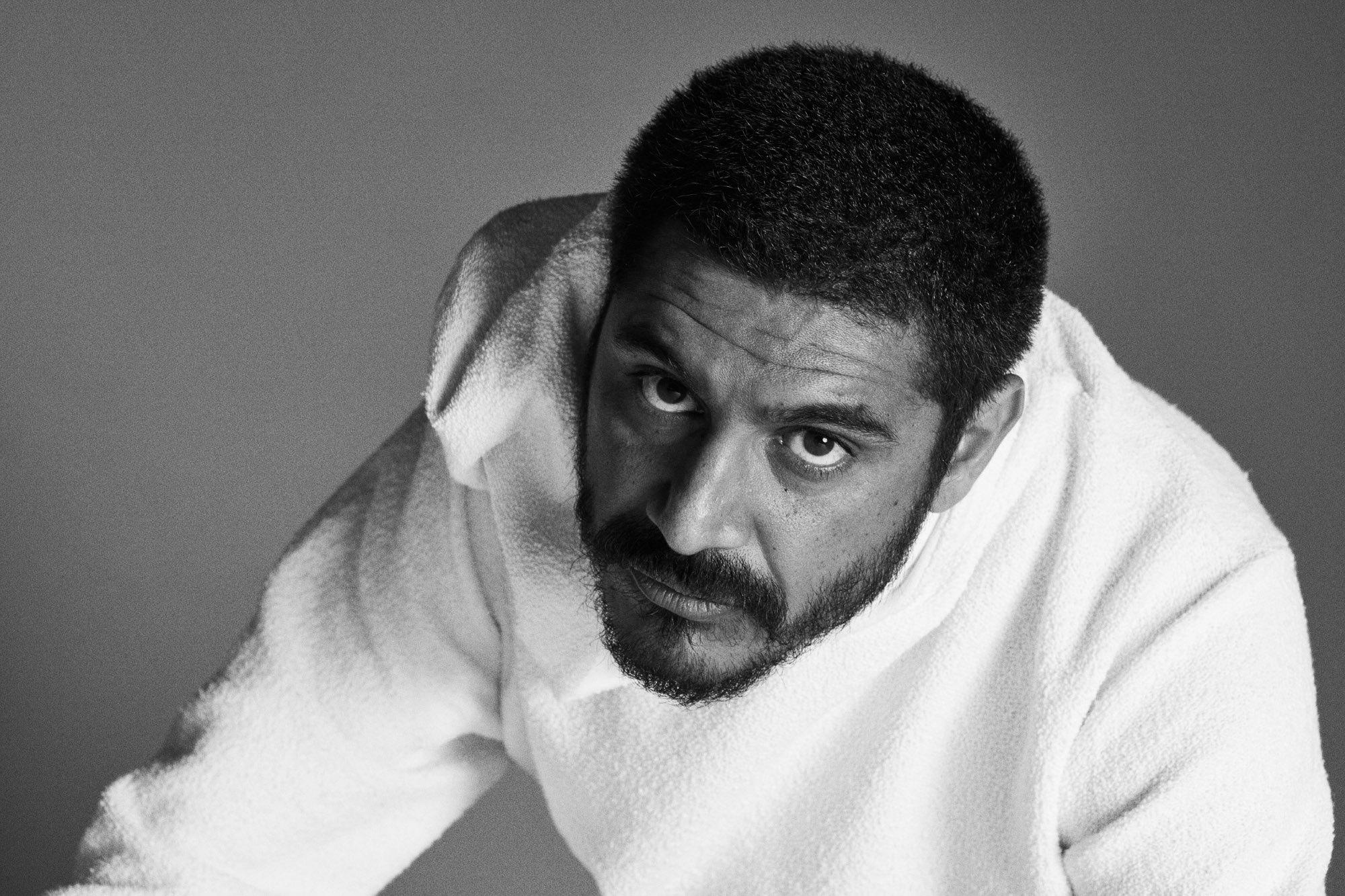A wise and lucid observer of social and political decay in his own country, Brazilian rapper Criolo returns to conscious rap with the video for “Boca de Lobo” – both a realistic and bold denunciation of Brazilian chaos and a call to collective mobilization.
“Agora, entre meu ser e o ser alheio, a linha de fronteira se rompeu”: “Now, the frontier line between myself and the alien has broken”. This extract from a poem penned and recited by the great Wally Salomão initiates the diatribe Criolo chose to send to a political regime whose abuse of power has contaminated a great part of society. No one is spared the possibility of walking into the boca de lobo – literally the “wolf’s mouth”, both meaning “the lion’s den”, the trap of a perverted society; and also designated to the pavement drains in Brazilian. And many of the recent civil rights demonstrators have found themselves laying on the ground, their bloody face stuck to one of these drains, during one of the many heavily-repressed demonstrations broken up by State police.
This weekend, Saturday, 5th and Sunday, 7h October, 150 millions Brazilian voters will decide about their own future in the ballot boxes: whether they go back to the cruel and violent souvenir of the dictatorship, or they cope with and face up to the imperfections of a modern democracy.
Over the course of only a few decades, Brazil managed to get out of a Christian-influenced military dictatorship (1964-1985), then tried and blossomed into a socialism-inspired liberal democracy that could not erase corruption (Lula da Silva then Dilma Rousseff, 2002-2016), before it sank again, and brutally, under the lousy tricks of an unapologetic neoliberal-authoritarian State (Michel Temer, 2016-2018). This last transition has insidiously paved the way for the possibility of yet another fascist-neoliberal dictatorship, promoted and advocated by former colonel Jair Bolsonaro: the latter, a nostalgic of the military junta, has been at the top of the most recent opinion polls regarding the future presidential elections, despite a failed murder attempt on his own life. One of his slogans? “God, Homeland, Family.”
“The industry of despair is a good business for the government:
They sell more remedies, they sell more consortiums,
They would even sell their own mothers, if it was a good deal.
Montesquieu is suffering; they sold him into small shares.
(…)
Here is the machine that kills the poors:
In Brazil, you die from having an opinion.”
– Criolo, “Boca de Lobo” [loose translation by the author]
“É que a industria da desgraça pro governo é um bom negócio
Vende mais remédio, vende mais consórcio
Vende até a mãe, dependendo do negócio
Montesquieu padece, lotearam a sua fé
(…)
Olhe, essa é a máquina de matar pobre
No Brasil, quem tem opinião, morre”
Criolo, as always, sits on the fence of a bipartite game whose flaws he already knows too well. On the contrary, and true to his role of conscious rapper-educator, he tries to awaken people’s minds and invites his listeners to take a critical look at a reality that looks more like an apocalyptic video game scenario than today’s Brazil society.
“We won’t forget the bad things the government leaders have done to us, the people. We won’t forget anything, but we have to understand the situation without falling back onto anger and hatred”, confesses Criolo about his latest single and video. Then he adds, “we are living strong and defining moments, that will mark history. Let’s wish that the result will be on the positive side of things: hope, love and happiness. Let’s work for reconciliation and let’s rediscover what brings us balance and serenity.”
Shot in the center of megalopolis São Paulo, with the participation of civil rights activists – noticeably squatters from the collective “Ocupação 9 de Julho” – the video shows Brazil as a society that has long remained on the verge of implosion, if not explosion, and whose safety valve started to malfunction. The system could not bear the all-over-the-place corruption, inside the political elite as well at street-level and family-level, and a great violence eventually took over: militarized police repressing pacific demonstrations, shop lootings, murderous police interventions in favelas, violent “cleaning” of the drug zones (noticeably Cracolândia in São Paulo) and lastly, a giant fire that burnt almost the entirety of Rio’s National Museum, only because the State had never allocated enough resources to renovate and maintain the building…
What about “the poors’ health programme? Do not fall sick!”, Criolo raps with pertinence and determination, he the former educator who grew up in São Paulo’s favelas. He the rapper who has not forgotten that a good flow is better than any political speech:


